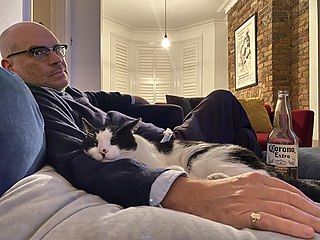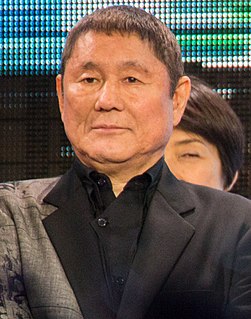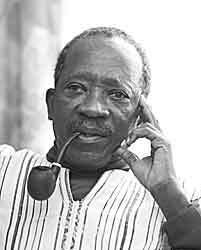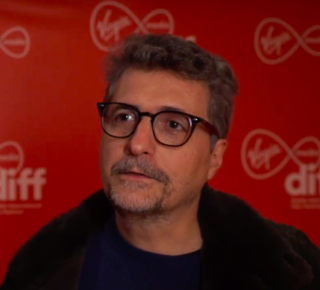A Quote by Jeff Buckley
I like cinematic art that doesn't have to include violence as the main meat of emotion. Now, excellence in cinema is based on murder, guns. Tarantino bores me. Even though he is very appealing and very facile about putting elements of pop culture into his work. But it kinds of dates it, right?
Related Quotes
Violence never really deals with the basic evil of the situation. Violence may murder the murderer, but it doesn’t murder murder. Violence may murder the liar, but it doesn’t murder lie; it doesn’t establish truth. Violence may even murder the dishonest man, but it doesn’t murder dishonesty. Violence may go to the point of murdering the hater, but it doesn’t murder hate. It may increase hate. It is always a descending spiral leading nowhere. This is the ultimate weakness of violence: It multiplies evil and violence in the universe. It doesn’t solve any problems.
To be honest, for me, my main workout is when I'm on stage. Even though I make pop music, I don't think I perform in the classic 'pop star' sort of way. I'm very active on stage; I always end up dripping in sweat afterwards. It's always like a full-on, wild performance, so that's pretty much like my exercise, I would say.
Rory is very established in England, which you are seeing right now with Bond. But his father Roy Kinnear was a very, very beloved comedy actor here in the UK. And Rory actually even looks a bit like his dad. And so it makes a lot of sense to me that Rory has such good comic chops because it's in his blood. He's very, very funny as Sean.
It seems to me that [my films] are talking about very simple and, I hope, universal feelings. And at the same time, even though they are set in a very weird world with elements that are irrational, at the same time, it's very close to an ordinary world. And I like to have this third feeling of mystery.
There are many innovators hard at work seeking to perfect alternatives to meat, milk, and eggs. These food products will, like computer-generated graphics or photography or sound systems, just keep getting better and better until there is little difference between an animal-based protein and a plant-based one, or farm-produced versus cultured meat. That will make it easy for people to make the kinds of choices that will usher in a world with far less violence.
I think cinema is needed throughout Africa, because we are lagging behind in the knowledge of our own history. I think we need to create a culture that is our own. I think that images are very fascinating and very important to that end. But right now, cinema is only in the hands of film-makers because most of our leaders are afraid of cinema.
I'm concerned about a better world. I'm concerned about justice; I'm concerned about brotherhood; I'm concerned about truth. And when one is concerned about that, he can never advocate violence. For through violence you may murder a murderer, but you can't murder murder. Through violence you may murder a liar, but you can't establish truth. Through violence you may murder a hater, but you can't murder hate through violence. Darkness cannot put out darkness; only light can do that.
When you write a scene where somebody is afraid of something you instantly go to decades of genre cinema: horror, suspense, and thrillers. Those are very cinematic genres, when you shoot a close-up of someone and you can see fear in the person's face, or anticipation, or some kind of anxiety, it's a very cinematic image.


































